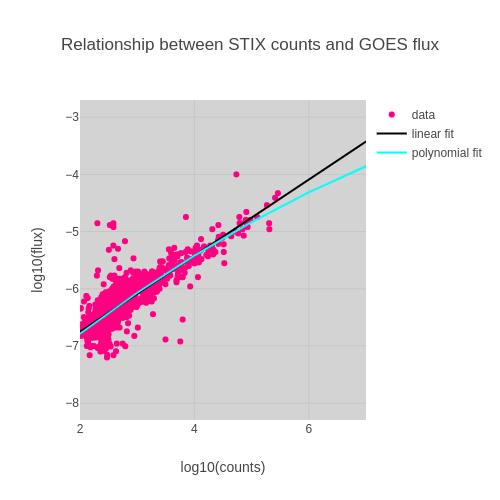Difference between revisions of "GOES Flux vs STIX counts"
| Line 5: | Line 5: | ||
where p0, p1 are the parameters from the curve fit, peak_counts is the STIX QL LC peak | where p0, p1 are the parameters from the curve fit, peak_counts is the STIX QL LC peak | ||
counts and r is the distance between the Sun and solar orbiter in units of au. <br> | counts and r is the distance between the Sun and solar orbiter in units of au. <br> | ||
| + | |||
| + | |||
| + | |||
| + | [[File:Goes stix flux fit lms.png|800px|thumb|none| ]] | ||
Revision as of 14:16, 20 January 2022
The GOES flux of a solar flare is estimated using
flux=10^(p0+p1*x),
with x=log10(stix_peak_counts*r^2)
where p0, p1 are the parameters from the curve fit, peak_counts is the STIX QL LC peak
counts and r is the distance between the Sun and solar orbiter in units of au.
